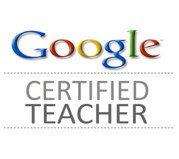
The future of intellectual property in a remix generation
facilitator: Kristin Hokanson
What is your understanding of copyright? small group discussion.
common themes-
what is law vs. what is ethics?
public vs. private use
using certain media to enhance your message (the importance of teaching this to kids)
contextual and intent-driven
where do you draw the line on educational use?
citing sources, attribution
The intent of copyright: "to promote creativity, innovation and the spread of knowledge"
-Article 1, section 8 US Constitution 1787
Fair Use is the exemption to the law. How are we teaching kids to make the distinctions?
Range of comfort with use of copyrighted materials:
"see no evil" teachers who say go ahead and do it, I don't see it. sends kids mixed messages
"close the door" - I'll just close the door and we'll go ahead and do what we want.
"hyper-comply"- teachers who want exact rules, times, etc.
all of these examples fly in the face of critical thinking around the issues.
Discuss:
What do kids understand about...
•copyright
•fair use
•public domain
•creative commons
•understanding the difference between authorship and ownership
•creative commons
-challenge of giving credit, challenge of school filters
•what is the purpose of your work? are you analyzing the piece or simply restating something?
example of importance of purpose: Bill Graham Archives vs. Dorling Kindersley, Ltd. (2006)
Bill Graham sued DK for using their poster in a book about rock posters. DK won. The purpose of the original poster was to promote the rock concert. Purpose of the book was to document the time period, etc.
Codes of Best Practices:
Book- Code of Best Practices in Fair Use for Media Literacy Education (available from Media Education Lab)
The effective use of copyrighted materials enhances the teaching and learning process.
Context and situation of the material (user's rights video. available on temple site, embedded in the wiki, linked above).-
fair use depends on the benefit to society. does benefit to society outweigh the costs of the copyright holder.
Ask yourself: Did I
*add value?
*repurpose?
also on the wiki: scenarios for discussion, fair use reasoning sheet to help students develop the critical thinking skills around fair-use
"Mashups are an opportunity for students to really look at the media they consume-- to take it and give it their own spin. It helps show kids how they can present their own point of view."-Faith Rogow
Watch: Larry Lessig's TED talk (How the law is strangling creativity)
The above are notes I took during the session. I just want to add that this session really opened my mind to a new understanding of this topic. There are no hard and fast rules. It really is about critical thinking and developing media literacy and a true understanding of intellectual property. And the best news of all is that there are incredible resources (check out the links) available to teach yourself and your students about copyright and fair use.






2 comments:
PHEW...I met my objectives then :)
Your take away It really is about critical thinking and developing media literacy and a true understanding of intellectual property. Is what I would hope that all teachers would think about when they are using media in the classroom. AND when asking students to create new content that they have these conversations with them.
One thing that I may not have pointed out is that one of the points that Lessig makes is that the law is flawed...frankly, we can't afford to stand around and wait for this to change. We need to exercise our rights to fair use UNDER the law. We need to give our kids the critical thinking skills required to make a fair use determination AND the Code of Best Practices helps us to do so!
I am so glad you attended the conversation and hope you will share information about our Copyright Clarity workshop this summer.
@Kristin Thanks for the comment. I think you did an excellent job of meeting your objectives. Glad I passed the course :)
This has been an issue near and dear to my heart for a while now, and I have to admit that I have, at one time or another, been all of the examples you shared (close the door, see no evil, etc).
Your session really helped me to clarify things, as well as pointed me in the direction of great resources. And what teacher doesn't appreciate that?!
Post a Comment